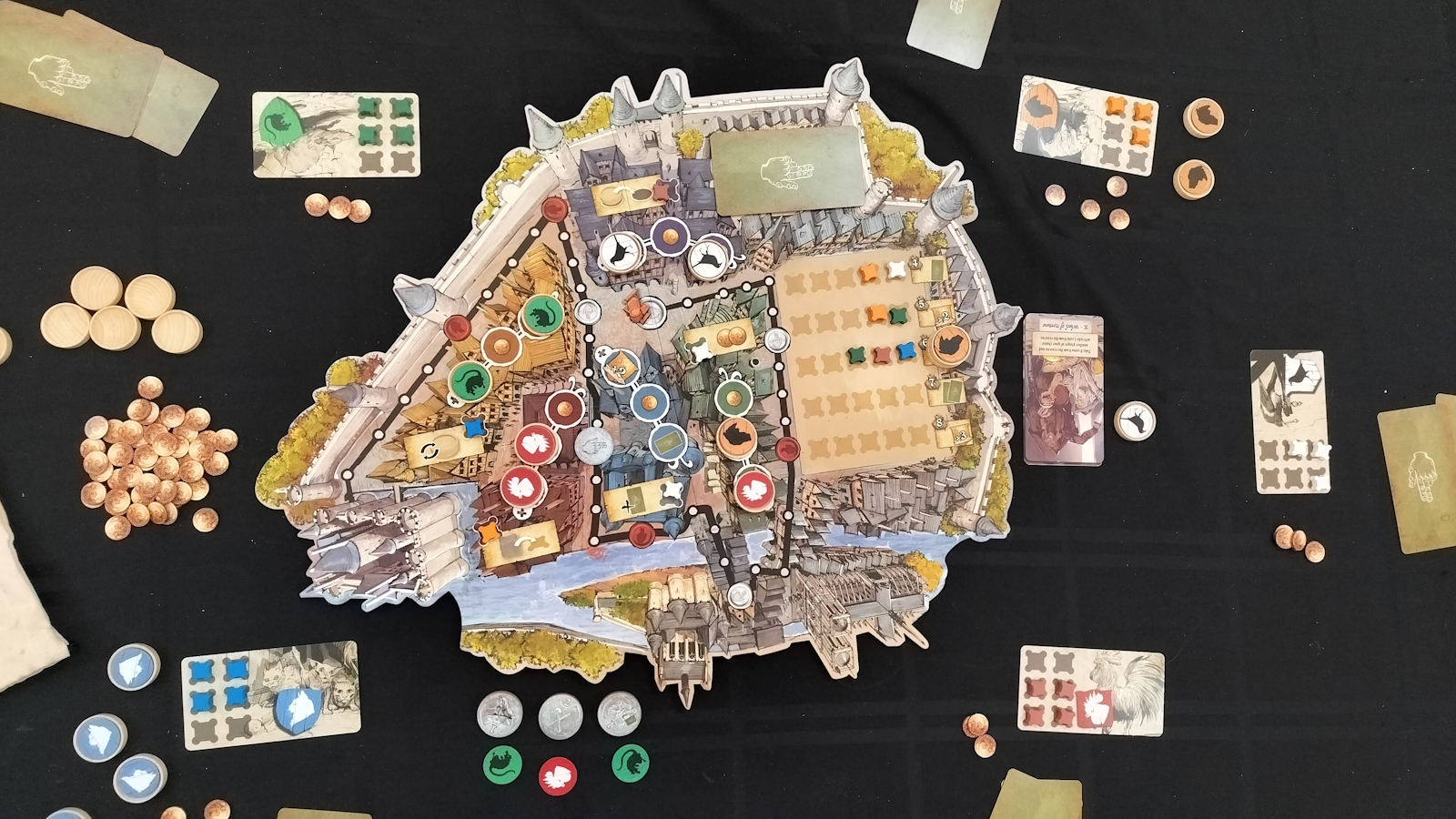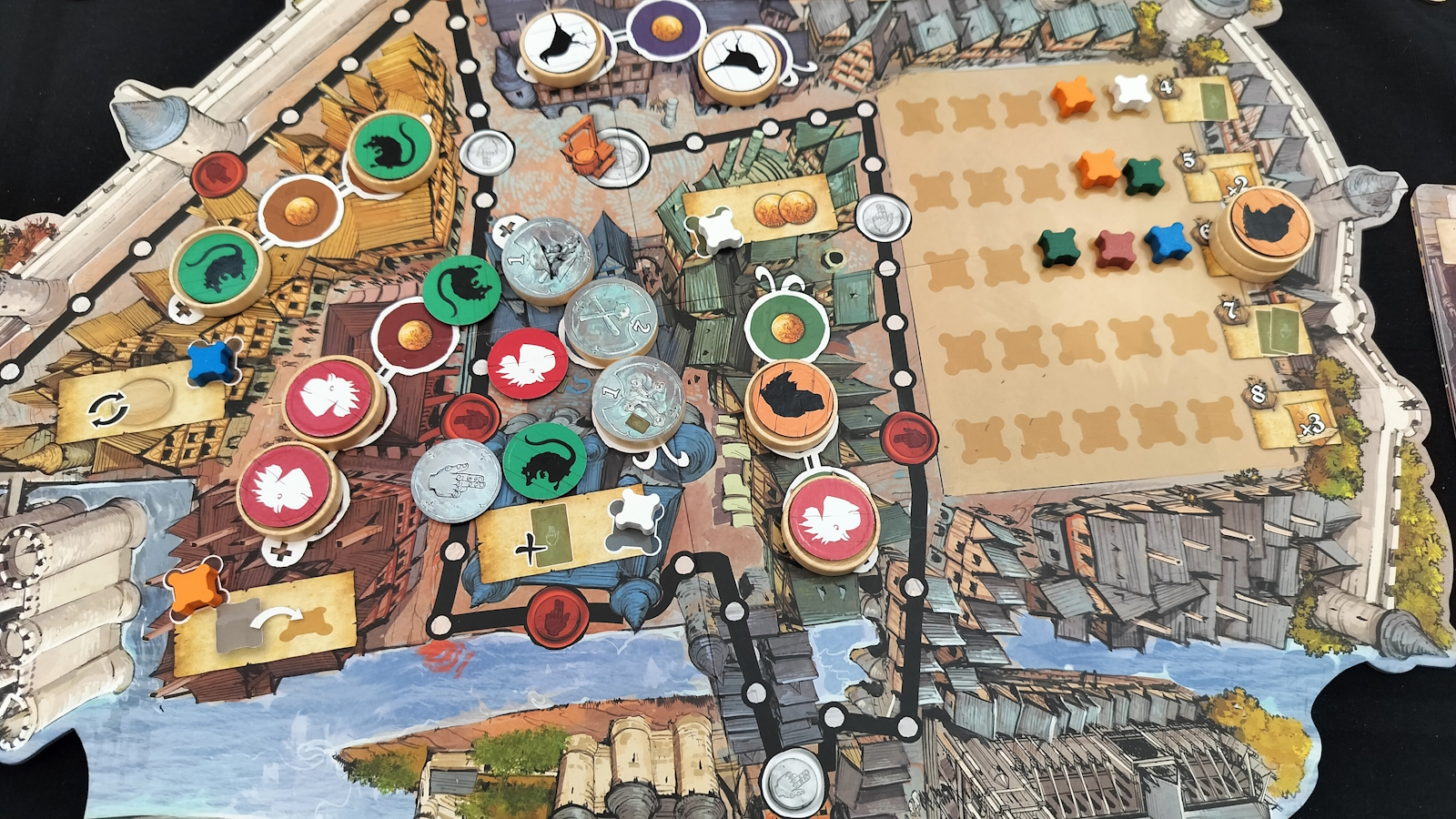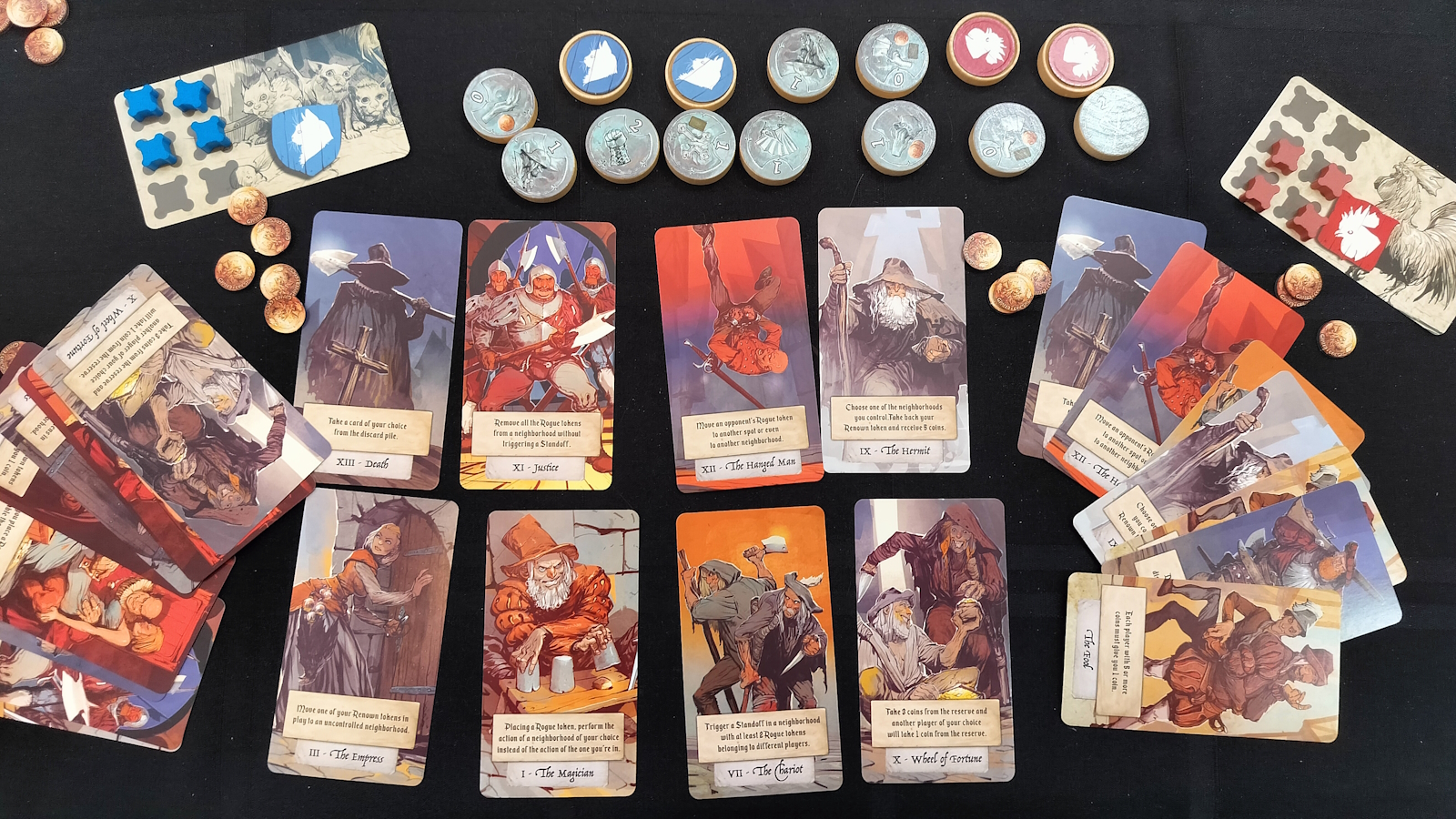In old Paris, there is a place where the crippled walk, the sick are cured, where gold appears like magic and beggars become kings. That place is the Court of Miracles. Of course, the only miracles that occur there is that the beggars and thieves that populate it can walk without their disguises of broken soldiers, sickly vagrants, or poor priests. And the master of this most low court is the Penniless King, the liege of all beggars and thieves in Paris. Times are changing, and the king is looking to pass his seat onto a worthy successor. It’s up to your gang of thieves to put you on that throne.
In Court of Miracles, 2 to 5 players lead gangs of deserters, urchins, defrocked priests and thugs to be the first to earn 6 prestige. It is at its heart a worker placement game. However, each rogue that you put down also has a hidden power. When you place a rogue on the board, you get a bonus from the space you chose, as well as the neighborhood you placed in. The spot bonuses could be money, cards, or moving the Penniless King a space or two towards his final destination at the gallows.
Each neighborhood does something unique, from giving money or cards, to swapping one of their rogues for another from a bag full of powerful rogues. Another neighborhood allows players to spend their hard won coin on prestige, gaining a bonus as well as permanently putting one of their 6 prestige on the board. The last lets a player move any one rogue on the board to another spot on the board. This is especially powerful when it comes to winning standoffs.
Standoffs are the other way players can win prestige. When a neighborhood is full, or when the Penniless King passes it by, each player will reveal their rogues in that neighborhood. The player with the highest total number wins the standoff. Winning the standoff grants your gang control of that neighborhood, placing the prestige on that spot. Of course, it can easily be lost in the next standoff. Standoffs also return the rogues involved, making them available for more skullduggery.
Of course, your placement is not the only thing you can do on a turn. Each turn, players can play 1 card from their hand. These do powerful effects, like pulling tokens off the board without a standoff, gaining money from your foes, or taking a different action than the space you played on. This allows for some real tricky play, though some of the cards can be disappointing, or literally unplayable depending on the game state.
The game ends the moment one player gets their sixth prestige token onto the board, or the moment the Penniless King reaches the Gallows space at the end of his path. This means that the game is always moving towards a conclusion, ending in a very breezy 45 to 60 minutes if everyone knows what they’re doing. The game’s short playtime belies the deep political strategy involved. Is it worth rushing money early, so you can unlock your 4th rogue early (the powerful Right Hand man)? Or perhaps the first thing you might want to do is upgrade your pieces, hoping to win more standoffs. Do you play your best rogues to win standoffs, or play the beggar, expecting to lose? A beggar, after all, takes a coin from the winner of the neighborhood.
Of course, you never know what others are playing. Is that their unbeatable swordsman? Or their very beatable courtesan that might be winning them the game if you don’t drop your Right Hand? These I know you know but do you know I know scenarios are less common at higher player counts, as chaos starts taking more control. Despite this, it is very fun at 5 players, but I think it shines at 3 or 4 players. 3 players means that no neighborhood goes a turn without you having a chance of impacting the outcome of any given standoff. Of course, any time a player gets close to dropping their last prestige token, everyone can start working on attacking that player’s strongholds, pushing them out and putting prestige back on their card. Of course, this might put another player in a better position to win instead.
The game has some issues. My biggest issue is with the manual. Namely, the translation from its original French has some weird conventions. Thanks to using words like “The latter player” in multiple situations when it’s not clear which person they’re actually referring to, the otherwise simple rules sometimes require a little creative reading to understand. I also feel like there’s not enough rogue tokens available, especially for 5 players. In addition, there’s only a dozen or so different cards in the deck. This is especially weird to me, since they use the Major Arcana of the Tarot for the names. I can’t help but feel like they just couldn’t come up with another 12 cards for the rest of the Major Arcana, and I’m wondering what the game would have looked like with that extra variety.
It’s honestly pretty mild critique for this great game. After all, the game board is gorgeous, a sort of hyper characterized version of Paris with visible landmarks like the Arche de Triomphe or the Louvre. The cards all have detailed art of your rogues doing their dirty deeds in grimy alleys and streets. The token system is also very ingenious, with the lovely wooden tokens each carved with a spot for your player token to settle satisfyingly. Placing and revealing rogues for standoffs feels like participating in a shell game, where no player knows exactly where the ball is. The only thing keeping this from being a higher rated game is that there just isn’t a ton of content here. It’s a short game that takes its core spin on the worker placement mechanic as far as it can without over complicating it, and without overstaying its welcome.





















